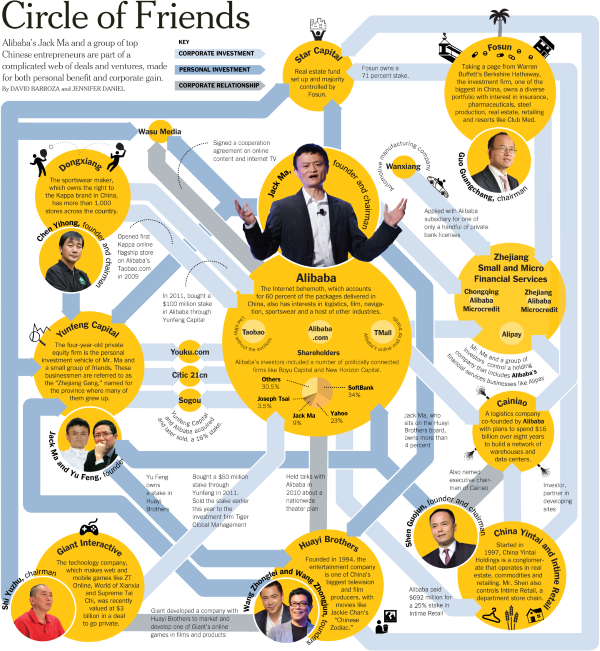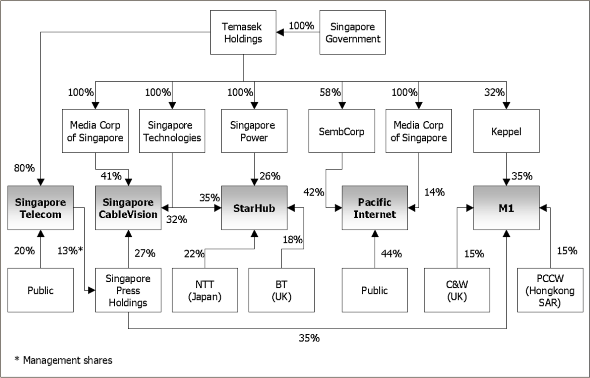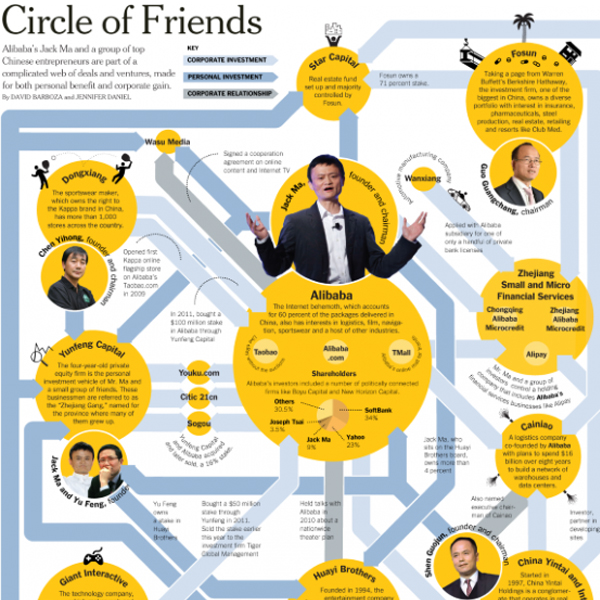aNewDomain.net — Alibaba, the massive e-commerce conglomerate in China, lit up the news last month with a record high stock offering. At the time, I compared Alibaba’s market capitalization with other prominent companies, like Apple, Intel and Amazon. Now it’s time for a closer look at Alibaba and how it really compares with similar companies in terms of structure, business model and overall philosophy…
A tangled web
Alibaba ran an elaborate and lengthy PR campaign before its stock offering. The company even released a documentary film on itself. Strong interest followed, but that’s not the whole story. As is evident from its own documentary and the scores of media analysis that followed the Alibaba IPO, the firm has built up a web of industry relationships and connections as strong or stronger than your typical giant U.S. company.
Check out this New York Times article about Alibaba’s extensive relationships with other companies. Also, the below infographic, which shows Alibaba’s corporate relationships, personal investments on behalf of Alibaba founder Jack Ma, company investors like Yahoo and Softbank and other monetary tie-ins, really gets to the point.

Image Credit: New York Times
I created the chart below. It was designed for a case study I worked on a couple years back that tracked the web of companies that deal with the Internet in Singapore. My nephew, employed by Goldman Sachs in Singapore at the time, helped me to create the graph, which tracks the ownership relationships between the Singapore government and Singapore info-communication companies in 2000.

Ownership of Singapore’s info-communications industry, June 2000
These graphics show the web of business and ownership relationships due to both corporate and personal ties. For instance, the Alibaba infographic links Yahoo and Alibaba due to the personal relationship between Jerry Yang, co-founder of Yahoo, and Jack Ma.
U.S. corporations certainly have their own webs, but I wonder if they aren’t typically less interconnected than Asian companies. These graphics call to mind U.S., Chinese and other Asian cultural differences. For example, this pre-departure guide for Chinese students contrasts an individualistic U.S. with a collectivist China.
I am surely not an organization theorist, political scientist or anything close, but I wonder about basic differences between a U.S. company and a Chinese company like Alibaba. Owning a share of, say, Apple, is conceptually the same as owning a share of Alibaba. But in a very real way, the investment is world’s part.
For aNewDomain.net, I’m Larry Press.
Based in Los Angeles, Larry Press is a founding senior editor covering tech here at aNewDomain.net. He’s also a professor of information systems at California State University at Dominguez Hills. Check his Google+ profile — he’s at +Larry Press — or email him at Larry@aNewDomain.net.
*This is not to imply that all Asian corporate cultures are the same — for example, the venture-capitalist role of the Singapore government is apparent in the Singapore figure above. That being said, it should be noted that, when I was there, Chinese people dominated the Singaporean companies.













